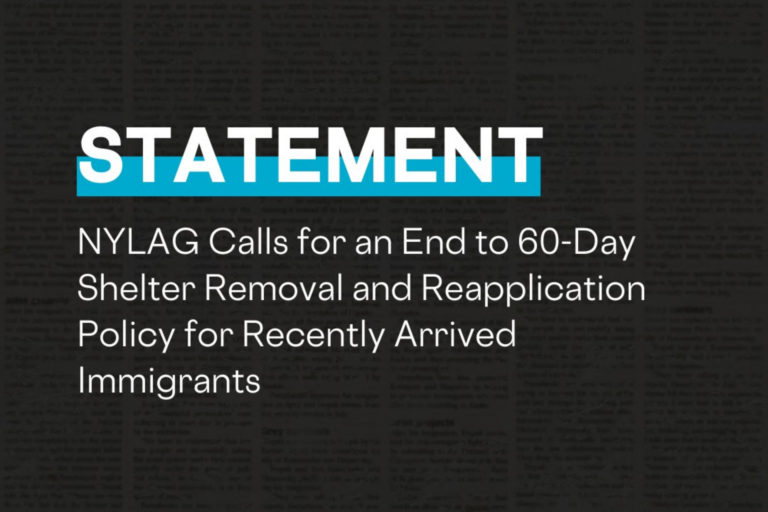By Gwen Hartstein and Cami Capasso, NYLAG financial counselors
"How can I save if I don't make enough money?"
As financial counselors, it’s a common question we hear every day. Many people believe they need to make a lot of money to save. That’s just not true. Every day, we help clients with low or limited income do just that—save money. The truth is you have options.
The fundamentals of savings are simply about working with the income you earn and making it work for today and tomorrow. How’s that possible? Fear not, we’ve put together four steps to consider when saving money with a limited and/or low-income.
1. Change Your Money Mindset

We all maintain certain beliefs about finances. “Money is the root of all evil”; money is safer in the house rather than placing it in a bank or one’s credit history doesn’t affect their livelihood are all common misconceptions. Unfortunately, many of these beliefs hurt our abilities to build wealth and become financially stable.
With a shift in our money mindset, we realize we use money; money doesn’t use us. As we take advantage of the free financial resources, we begin rethinking and understanding how to accept new ways to build our financial security. In time, your relationship with money will become healthier, and you will set up your family to build inter-generational wealth…one changed mindset at a time.
2. Create a Savings Goal

When living from paycheck to paycheck, a savings goal can seem daunting and unrealistic. Creating a savings plan can help you prioritize your long-term financial stability. The best part is you can start small–like, save a dollar a day small. At the end of a year, you can save $365 (or $366 in a leap year). Those funds could help pay down debt, establish an emergency fund, pay for tuition, and even celebrate a birthday or anniversary! Most importantly, you’re clearly stating what you’re saving for. Once a goal is set, you become intentional about spending.
3. Build a Budget

Establishing a budget is essential if you want to take control of your finances. A budget tracks your income and expenses and is your personal guide to managing your money. Budgeting is important. We need to know where our money is going to see where we may be over-spending and what may get in the way of achieving our savings goal.
It’s challenging to think about saving if you have no idea how much you’re spending on food or entertainment, just to name a few. Your budget will help you determine where you can adjust your spending and to support you on your journey to attain your goals. A budget isn’t “set in stone” or forgotten. It’s meant to live and evolve with you throughout your life. Money management is one of the most valuable life skills to learn and pass down generationally. Budgeting is at the center of it all.
4. Look for Ways to Save on Expenses

Did you know there are affordable and free financial tools available to YOU? That’s right folks! A little research goes a long way! Check out some of the resources listed below. From interest-earning free checking and savings accounts to free tax preparers–think of all the money you could be saving right now–and the list goes on and on.
- Affordable and free-checking: You should NEVER pay fees to have a bank account or a pre-paid card. If you live in NYC, you can check out the website below created by the Comptroller of New York specifically for low-income families who struggle to find affordable banking. https://comptroller.nyc.gov/takeittothebank/find_a_bank.php
Affordable and free savings: Popular banks like Capital One 360 and Discover bank offer free savings accounts. Check out the following links to determine the best banks for your needs:
Free tax preparation (prep): Yes, you read that right: FREE TAX PREP. Why pay hundreds of dollars on tax preparation fees when you can have it done for FREE? Tax preparation services are one of the most expensive services New Yorkers pay for. You work hard for your income and pay Uncle Sam an interest-free loan all year. Now it’s time to get back your overpaid taxes. Below, are three links to access locations for free tax prep services in NY and the Tristate area:
The Volunteer Income Tax Assistance program: https://irs.treasury.gov/freetaxprep/
ACCESS HRA: https://access.nyc.gov/programs/nyc-free-tax-prep/
Free online tax prep: https://www.tax.ny.gov/pit/efile/default.htm
Savings can feel overwhelming and out-of-reach, but it doesn’t have to be. If you’re in NYC, you have access to FREE private confidential financial counseling. NYLAG is here to help. You can find out more information on our financial counseling page, find a financial counseling site, or call 311 to ask for your free financial counseling session near you.
Follow our steps to shift your money mindset, commit to a savings plan, establish a budget, and take advantage of free services. By doing so, you’ll be well-positioned to increase your savings and strengthen the financial security of your family.








